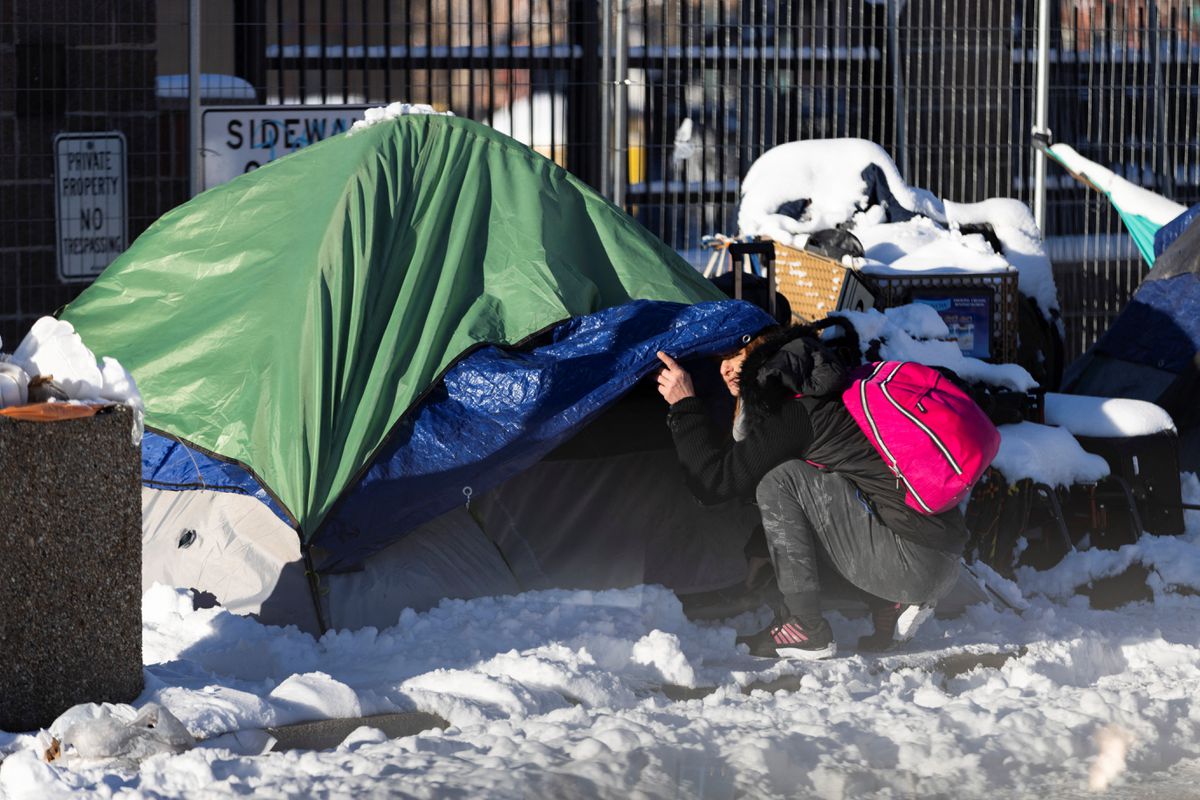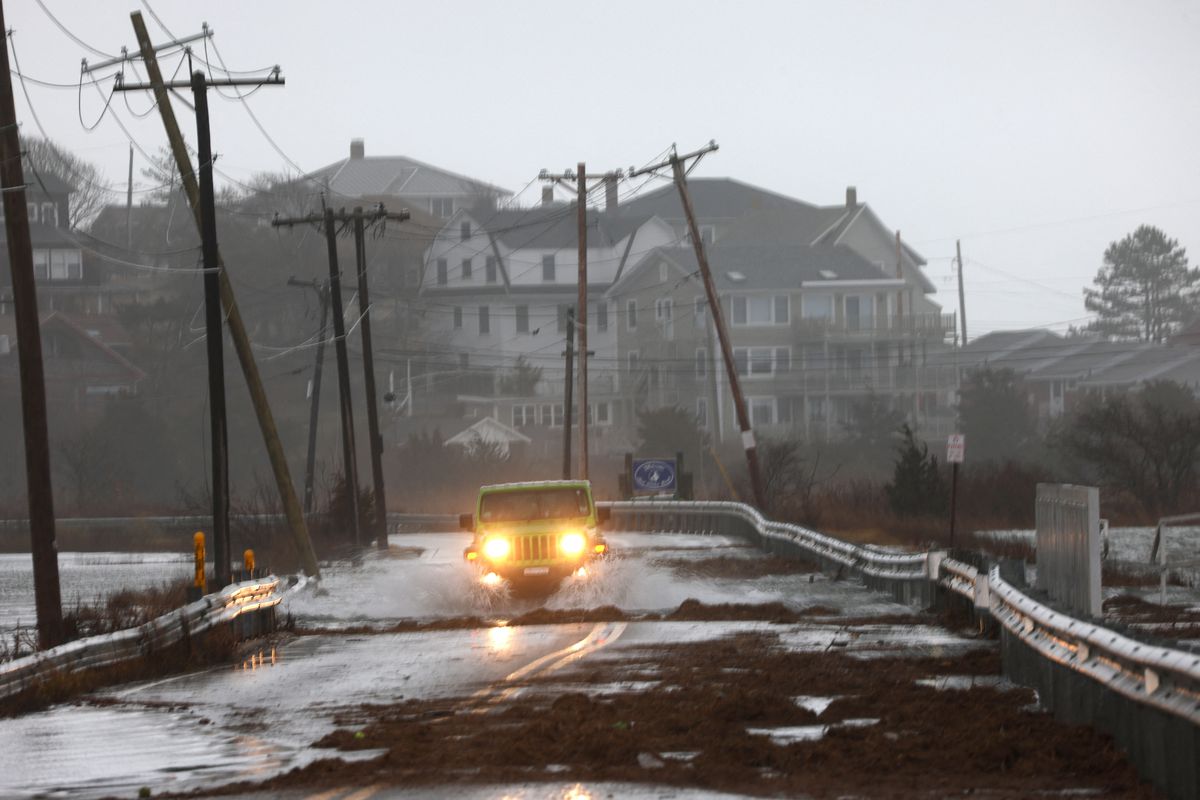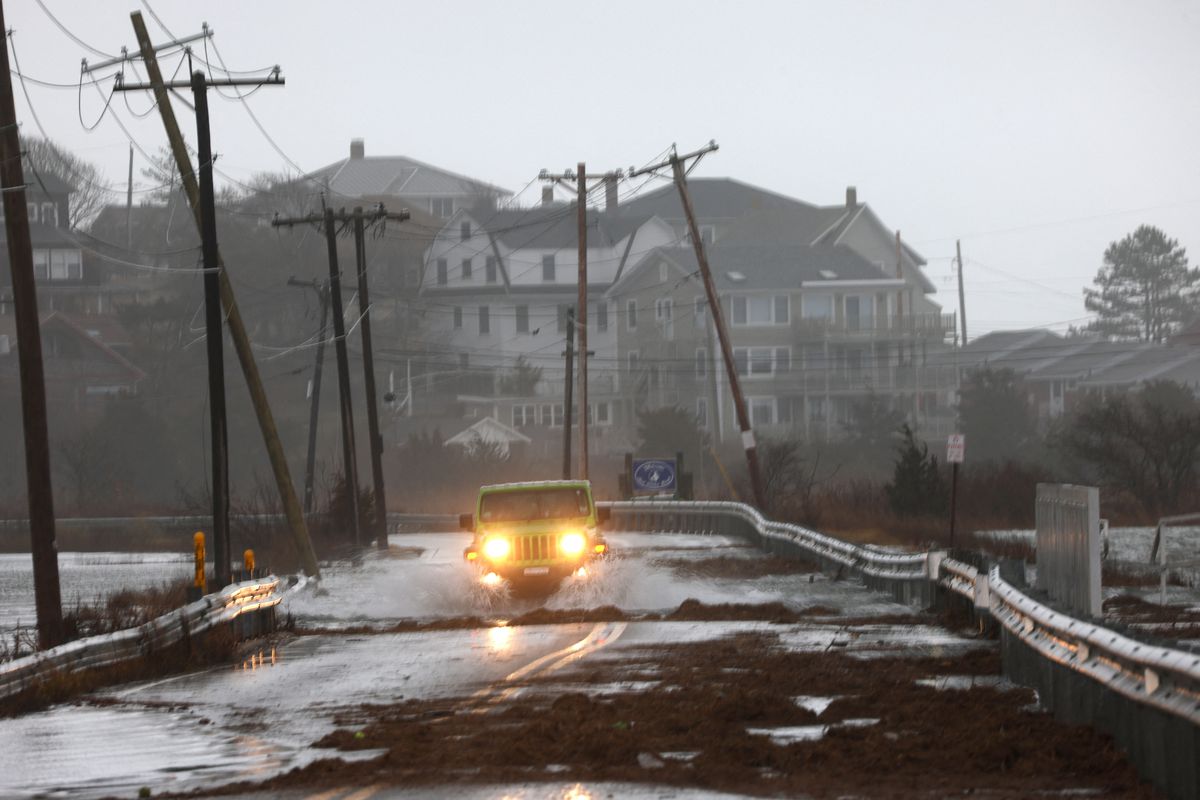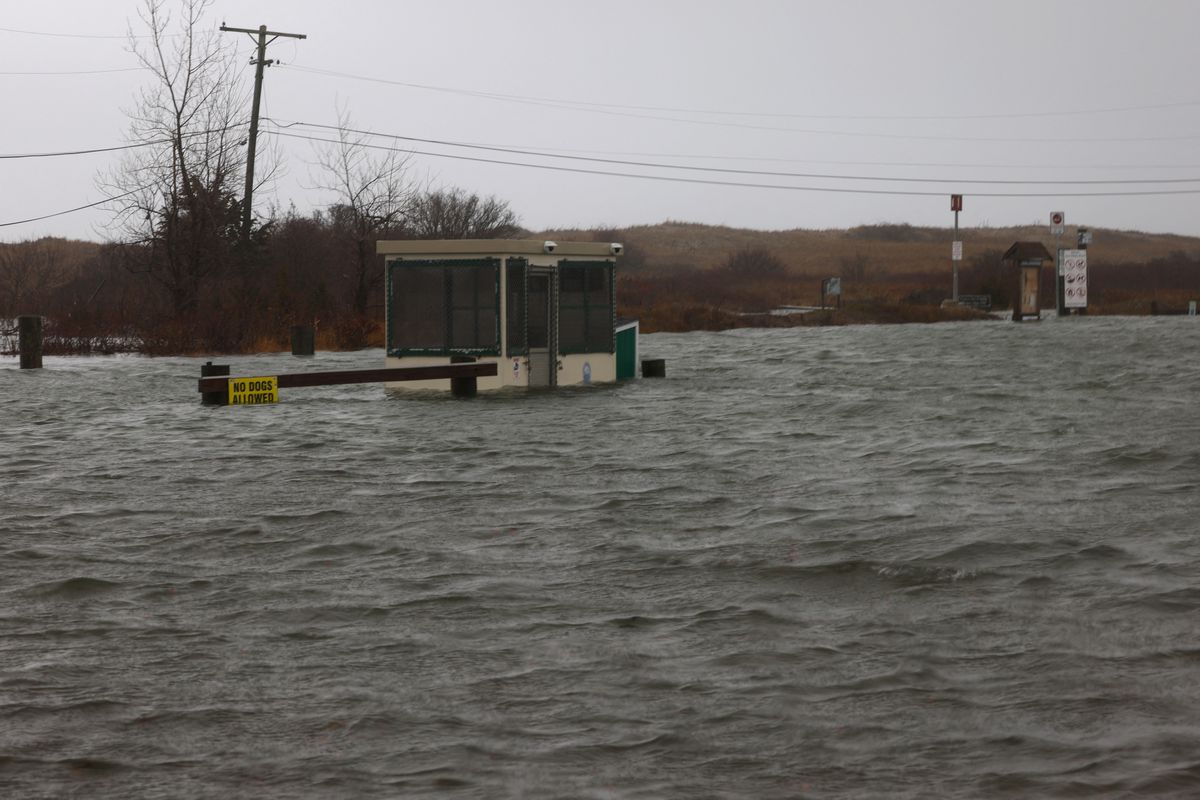Arctic blast, blizzards disrupt US travel ahead of holidays


WASHINGTON – Arctic cold extended its grip over much of the US on Friday (Dec 23), combining with snow, ice and howling winds from a major winter storm roaring out of the Great Lakes to disrupt energy supplies and thwart travel for millions of Americans ahead of the holiday weekend.
The extreme winter weather was blamed for at least four deaths on Friday.
A 50-vehicle traffic pileup on the Ohio Turnpike in the midst of a blizzard near Toledo killed one motorist, injured several others and shut down both lanes of the highway, according to the Toledo Fire & Rescue Department.
Stranded motorists had to be evacuated by bus to keep them from freezing in their cars in sub-zero temperatures, the department said.
Three weather-related fatalities were also confirmed in the adjacent state of Kentucky - two from car accidents and one a homeless person who died of exposure.
"Please stay home and stay safe," Kentucky Governor Andy Beshear said on Twitter.
[embed]https://twitter.com/PugsPhD/statuses/1606358978275024902[/embed]
With the deep freeze stretching from Montana to Texas as it crept eastward, some 240 million people – more than two-thirds of the US population – were under winter weather warnings and advisories on Friday, the National Weather Service (NWS) said.

The nation's coldest spot on Friday was the remote northern Montana town of Havre, near the Canadian border, where the mercury had risen from a low of minus 39 deg C to a relatively balmy minus 28 just before noon, the NWS reported.
"It's been colder, but yeah, I guess it's cold out," Mr Tyler Schaub, manager of Rod's Drive Inn, acknowledged as he was flipping burgers on the grill. "We're used to it, but even then it's best not to stay outside too long."
Numbing cold intensified by high winds extended through the Deep South to the US-Mexico border, bringing single-digit wind chill factors to the border city of El Paso, Texas. Exposure to such conditions can cause frostbite within minutes.
Hard-freeze warnings were posted in southern Georgia and across much of all four Gulf Coast states – Texas, Louisiana, Alabama and Florida.
Farther north, heavy snowfall was forecast in parts of Michigan, Pennsylvania and New York, including upwards of 88cm in Buffalo, Weather Service meteorologist Ashton Robinson Cook said.
The storm front pushed into New England, where wind-driven surf caused coastal flooding.

The extreme weather added to a humanitarian crisis in numerous cities facing an influx of migrants who have crossed the US southern border by the thousands in recent weeks and lack permanent shelter.
Their plight has added to local agencies scrambling to get people off the streets as the arctic blast arrived.
The household routines and holiday plans of ordinary Americans were likewise disrupted just days before Christmas.
With the nation's energy systems strained by rising demand for heat and by storm-related damage to transmission lines, as many as 1.5 million US homes and businesses were left without power on Friday, according to tracking site Poweroutage.us.
Heating and energy prices spiked as inclement weather forced energy production cuts and bone-chilling cold drove demand higher.

Severe winds, ice and snow upended commercial air traffic during one of the busiest travel periods of the year.
More than 5,200 US flights were cancelled on Friday, according to flight-tracking service FlightAware. Nearly 700 flights into or out of Seattle's major airport were axed as a separate storm system brought ice and freezing rain to the Pacific Northwest.
The American Automobile Association (AAA) had estimated that 112.7 million people planned to travel 80 km or more from home between Friday and Jan 2. That number was likely to drop due to treacherous weather complicating air and road travel going into the weekend.

Officials in the area of Buffalo, on the edge of Lake Erie in western New York, instituted a driving ban.
[[nid:611236]]
"If there's any good news, it's that the storm has moved quickly over some areas," US Transportation Secretary Pete Buttigieg told MSNBC on Friday. Many airports, such as Denver, were expected to bounce back quickly from a wave of delays and cancellations. Other hubs like Chicago could recover later on Friday, he said.
Last-minute holiday gift purchases may also have slim chances of reaching their destinations by Christmas.
FedEx, United Parcel Service, the US Postal Service and Amazon.com all alerted customers that severe weather was disrupting key operations in Tennessee, Indiana, Kentucky, Illinois, the Dakotas and other areas hard-hit by bitter cold and blizzards.
Weather forecasters said the massive storm over the Midwest had materialised into a "bomb cyclone" – a phenomenon caused by a drastic, rapid drop in atmospheric pressure that forms a kind of cold-weather hurricane.
While some areas downwind from the Great Lakes received a foot or more of snow on Friday, "the big story wasn't so much the falling snow but the blowing snow," weather service meteorologist Brian Hurley said.